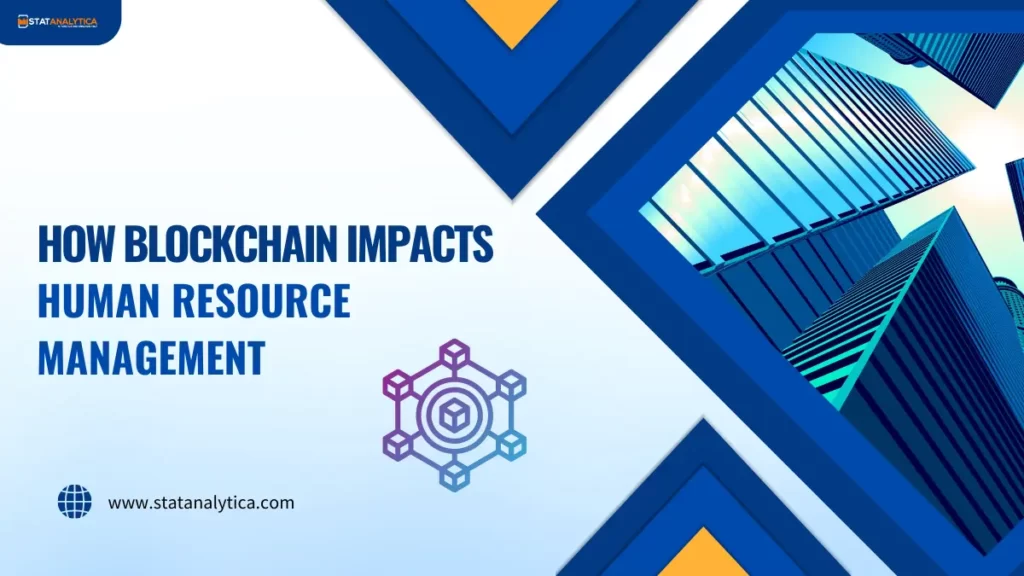Globally, many businesses across many sectors are testing and using blockchain, the decentralized distributed database. Blockchain’s capabilities can now be applied to various industries, including logistics, fashion, healthcare, and even humanitarian causes.
Businesses like Hays and NRG are only beginning to hop on the blockchain bandwagon, but it won’t be long until these procedures are likely to be expedited using this technology.
What effect will blockchain have on the HR department, then?
How Blockchain Impacts Human Resource Management
Table of Contents
Recruitment
Currently, the pre-hire verification process may be excruciatingly long when using normal techniques for finding applicants, deciding whether or not to pursue them and doing so. Even worse, there is a chance that it will be inaccurate and fraudulent.
Potential employees could modify their resumes according to the job criteria they are interested in. They may even make up allusions. Due to liability concerns, hiring managers may have to wait days for responses from contacts. Some businesses are hesitant to disclose comprehensive information about previous workers.
Imagine for a moment if personnel records were kept on a blockchain. Applicants might provide access to their blockchain-based job data to prospective employers. This might include work history, referral letters, academic transcripts, etc.
Blockchain can help remove the human element from the employment verification process, allowing employers and applicants to quickly get the answers they need. There will be no more handling emails from applicants while we wait for their former employers to provide feedback about them, according to Steven Paris.
Blockchain technology is bound to transform how recruiting operations are carried out inside the organization, even though it is often connected with buying Bitcoin or buying Tether in the USA.
Protection from cyber crimes
Management of human resources necessitates handling highly private financial and personal information. HR departments may receive and store pay, health insurance, financial and banking data, disciplinary records, and other information. All of this is vulnerable to exploitation.
With blockchain, it becomes harder for thieves to obtain that data. It’s almost gone in many instances. Since blockchain records are decentralized, there is no central location where hackers may access and alter data. In addition, all modifications must be confirmed and approved.
Smart Contract Benefits
According to reports, 45 percent of blockchain’s early adopters already use smart contracts inside their enterprises.
Thanks to a code that will specify what happens to the money after it is received and specific circumstances are established, smart contracts between a business and its workforce will make it feasible for employees to be paid automatically. There is no possibility of delays or fraud. Therefore the payment of salaries may proceed immediately.
Smart contracts also support the growth of the gig economy since gig workers would profit from such a system of contracts and payments if they were included in a company’s supply chain.
For companies and their HR teams that are accustomed to following specific protocols, not needing to upload employees into the payroll system, establishing the conditions in advance, and turning on and off a contract would be pretty enticing. Anyways, being an HR is a hard job, especially when it comes to contracts. You need to see the contract templates to make your workflow easy.
Employee Life Cycle
Blockchain technology will disrupt the whole employee life cycle since the existing recruiting process and onboarding of a new hire might take some time. It takes time to conduct interviews, examine credentials, confirm employment history, collect references, or submit applications for required security checks.
Throughout the course of employment (for instance, if the position changes, further credentials are attained, or new management is appointed after a handover), this process continues until the individual finally leaves the business.
And that’s not even the end of it!
The process may refresh itself, and you could be asked to provide part of this information to prospective new employers so they can do background checks on that person.
Blockchain would drastically minimize the time and effort required for this procedure since it would already include all of this verified information, streamlining the whole HR experience.
Accuracy of Data
Blockchain improves records’ accuracy, which also makes it more resistant to unauthorized changes (of all types). As a consequence, it may be used to check that the information acquired by time and attendance systems is accurate and cannot be altered in any way. ID2020 is already using blockchain technology to validate and store information, including biometric data. Human resources departments can increase the accuracy of their timekeeping and payment systems by using comparable technology.
More Secure Transactions
‘Transactions’ in a blockchain setting can be anything from exchanging personal information, work history, and records to financial details and cryptocurrencies.
The capabilities of cyber security are changing the future of these transactions as the information stored on the blockchain is secured through cryptography, making it extremely difficult to tamper with.
Knowing that blockchain is an enabler of secure transactions should put employer and employee minds at ease. Less risk means fewer claims of security or data breaches for HR to tackle.
Final Words: How Blockchain Impacts Human Resource Management
Human resources traditionally don’t get much attention when discussing blockchain technology’s potentially disruptive effects. Despite this, blockchain is already having a significant influence on this subfield, and it will continue to do so in various ways in the future.


